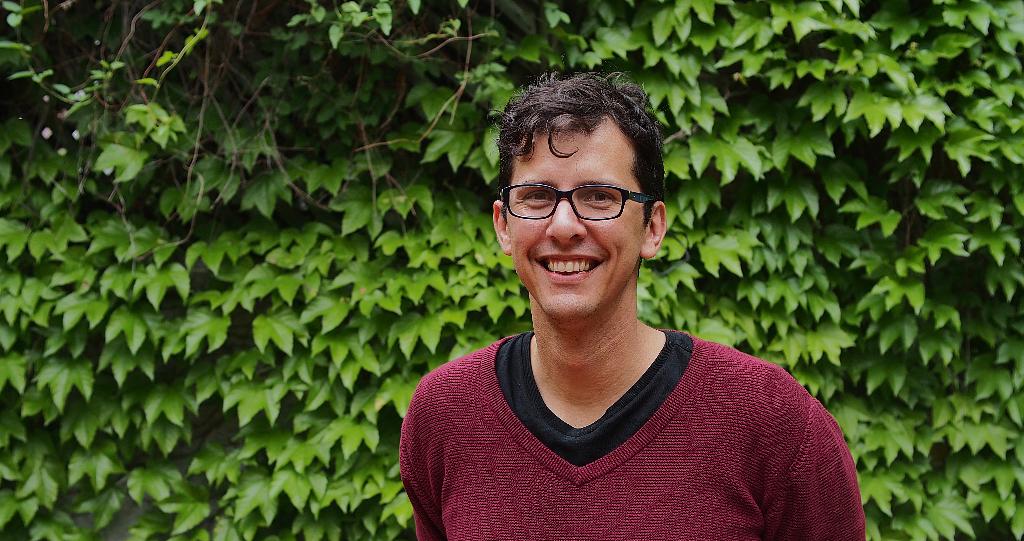Venezuelan photographer moves beyond Bucharest’s grumpy layer

Driven out by the insecurity in Caracas, Alejandro Ilukewitsch learns to enjoy change in new places.
Alejandro Ilukewitsch looks at the worrying taglines: “Venezuela is a bomb that could explode anytime”. The country is struggling with food crises, one of the highest crime rates in the world and high inflation. Ilukewitsch is worried, but from a safe distance: his new house in Bucharest.The 35-year old works with an IT company in Romania’s capital and is one of the 1.5 million Venezuelans living abroad.
Alejandro is passionate about documentary and street photography. “I'm no superstar”, he said when asked to be interviewed.
Days later, we met at a cafe in Bucharest. A dark-skinned, tall man, wearing glasses and a red sweater was waiting while drinking a cafe latte. He had just returned from the Goethe Institute in Bucharest where he’s taking German classes. He started the A1 German course some years ago when he first left Venezuela and moved to Germany. But he failed to finish the class because he found a job in Brazil in the healthcare IT sector.
Alejandro went to Germany with a student visa. Insecurity drove him out of Venezuela, he says. Berlin seemed cool, he already had friends there and he was in his late 20s. He just packed a bag with a few things and flew to Europe. His luggage got bigger when he moved from Germany to Brazil, and then there were even more things to carry when he left for a new job in Mexico. He was now accompanied by his wife, a Romanian woman whom he met in Brazil.
Romania, Eastern Europe’s Silicon Valley?
When Alejandro arrived in Bucharest, at the beginning of November 2015, the streets were packed with people protesting against the Government after a fire had broken in the Bucharest club Colectiv killing 64 people. Alejandro walked among the protesters stupefied that this tragedy took place in Romania too. He remembered about a similar incident that occurred in the south of Brazil while he was living in the country, and felt weird about the fact that people and countries simply don’t learn from others’ mistakes.
He thought it would be easy to find a job in the IT sector in Bucharest. He was a bit burned out by the two-year work experience in Mexico and decided with his wife to return to Europe, Romania for the beginning. “When you Google Romania, it’s supposed to be the Silicon Valley of Eastern Europe, all this super fast Internet,” he says laughing. But then he discovered that most of the IT companies active in Bucharest offer back office support, and he didn’t want to work in a call center after all his year-long experience in healthcare IT.
Apart from finding a job, Alejandro had to find his way in the new city.
“I usually just walk, and that’s how I get to know the city. I select neighborhoods and I go there. In the winter, it was tough.”
Bucharest people seemed a bit grumpy at first. But as soon as you break that barrier people are very open. It’s just a layer, Alejandro thinks. With his Leica camera around his neck, he would wander around Bucharest, talking to people in a mix of English, Spanish and some words in Romanian.
One evening, while he was returning home with an Uber car, the driver started telling him his story. He had worked for many years in the nuclear plant in Cernavoda, but he was now retired. Many of his colleagues had died due to prolonged exposures to radiation, the man told Alejandro. They were working 14-hour shifts, even though the the acceptable time for expose to radiation is around four hours a day. He had started doing Uber just to meet people and share stories. The drive had long finished, but the man and Alejandro kept talking. It wasn’t easy to communicate, due to the language barrier, and of course some things get lost in translation, the Venezuelan man says. But he was fascinated about this man’s story, and how lives change. “All changes have consequences, but that’s the way it is,” he says.
“Currently in Bucharest”
When Alejandro returned for some paperwork to his hometown Caracas last year, after several years of leaving abroad, he was shocked about how much the city had deteriorated. He uses the word “deteriorating” a lot when talking about Venezuela. It suggests a mix of anger and helplessness, as if he’s observing how the country’s situation is worsening, but he simply can’t help or do anything about it, except for leaving.
“The main issue for leaving was insecurity,” he says. “You can’t go in the streets. It’s the number 1 city in the world for the number of murders. That is combined with political uncertainty. The respect for life has completely vanished. You can do whatever you want without getting punished.”
His mother still lives in Caracas, and that’s a constant worry for Alejandro. “It’s in the back of my head all the time.” He reads the news about the country although he tries to avoid it sometimes, because it’s quite disturbing. At the same time, he can’t disconnect completely.
A few months after his arrival, Alejandro has found a job as project manager in a telecom company in Bucharest. He now takes even more pictures on the streets of Bucharest, as the weather got warmer. He wrote on his blog that he is “currently in Bucharest”. “Currently” holds the promise of a new adventure.
By Diana Mesesan, features writer, diana@romania-insider.com















